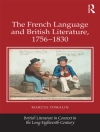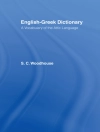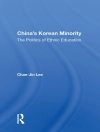This book explores the usage patterns of a group of adversative and concessive conjunctions in English texts written by Chinese EFL learners and their native speaker counterparts. Focusing on probability profiles and systemic potentials, the study encompasses three stages and combines the strengths of two research methods – the corpus-based approach and text-based analysis – to examine the conjunctions under the theoretical framework of systemic functional linguistics and rhetorical structure theory. Starting with an overview of seventeen conjunctions across two corpora in terms of overall frequency, positional distribution and distribution of semantic categories, the book then offers a more detailed discussion of three individual conjunctions, highlighting the interconnections between 1) syntactic positions and co-occurrence patterns and 2) semantic relations encoded by these conjunctions. Lastly, it presents a case study of one full-length text taken from the learner corpus, applyingrhetorical structure theory to provide new insights into the relevance of adversative and concessive relations to text structure. This comprehensive, in-depth analysis is both diagnostic and pedagogically informative.
Tabella dei contenuti
1 Complexity of adversative and concessive conjunctions.- 2 A combined method of corpus-based and text-based analysis of adversative and concessive conjunctions.- 3 Adversative and concessive conjunctions: Comparing frequency distribution across two corpora.- 4 Analyzing structural conjunction but by investigating its co-occurrence patterns.- 5 Analyzing cohesive conjunction however by investigating its syntactic positions and agnation structures.- 6 Text-based analysis of adversative and concessive conjunctions.- 7 Conclusion.
Circa l’autore
Dr. Yan Zhang holds a Ph.D. in English Linguistics from the Hong Kong Polytechnic University. Her research focuses on corpus-based study of L2 writing applying systemic functional linguistics, and her recent work has been published in Digital Scholarship in the Humanities. Dr. Zhang is also an award-winning teacher, teaching EAP (English for Academic Purposes) courses with a focus on chemical and environmental engineering to undergraduate and graduate level students at East China University of Science and Technology in Shanghai, China.












